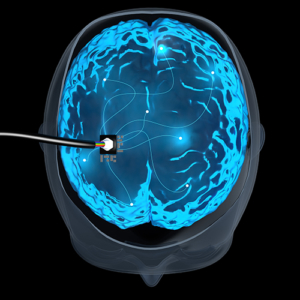Electrode Implants May Now Be an Effective Stroke Treatment Option
 For the first time ever, a treatment option that’s become increasingly popular in Parkinson’s patients – deep-brain stimulation – is being tested as a potential stroke treatment. Involving the implantation of an electrode that stimulates a particular area of the brain, the anticipated response will be a reversal of the paralysis so often encountered following a stroke, and the restoration of mobility.
For the first time ever, a treatment option that’s become increasingly popular in Parkinson’s patients – deep-brain stimulation – is being tested as a potential stroke treatment. Involving the implantation of an electrode that stimulates a particular area of the brain, the anticipated response will be a reversal of the paralysis so often encountered following a stroke, and the restoration of mobility.
To comprehend how a stroke restricts normal brain function, Laurie Ann Bonkoski, a speech therapist, compares a stroke to a home whose front entrance has all of a sudden become obstructed by a fallen tree. In her studies, she’s determined to sidestep that obstruction and access alternative pathways to help recover as much functionality to the person as possible.
To operate in conjunction with therapy to generate new neural pathways, Dr. Andre Machado of the Cleveland Clinic implanted the first deep-brain stimulating electrode into a stroke patient as the initial step in this clinical human stroke treatment trial. The next step will be to switch it on, transmitting the electrical impulses that he hopes will stimulate brain growth. Depending on the results of this trial, various other conditions are in line for very similar tests. University Hospital neurosurgeon Jennifer Sweet shares, “People are studying the benefit of this for addiction; we know that it can be effective in obsessive compulsive disorder, it’s been used to treat Tourette’s; it may even be an option for anorexia or obesity or hypertension.”
CareWorks Health Services, California’s leading in-home care provider, is going to be keeping an eye on progress in this trial. In the meantime, if you have a family member who’s suffered a stroke, call us at (949) 859-4700 for in-home care assistance to make improvements to his or her quality of life. We could assist in any of the following ways:
- Planning and preparing wholesome meals in accordance with any prescribed dietary plan
- Assisting with light cleaning and laundry
- Performing a safety assessment of the home to reduce fall risks
- Providing escorted transport to medical appointments or other excursions
- Picking up prescription medications and running errands
- And much, much more
